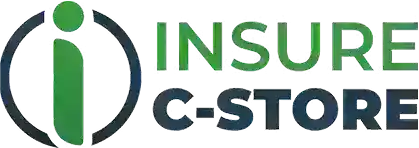Is My Gas Station Insurance Policy Renewable Annually?
Owning a gas station business means juggling risks on a daily basis, from underground tanks to customer slips and falls. With constant foot traffic, equipment hazards, and liability concerns, having a solid gas station insurance program is a must. The right insurance coverage keeps your business protected against unexpected losses.
But securing coverage isn’t a one-time deal—gas station insurance renewal ensures continued protection. Without it, you risk coverage gaps that could leave you paying hefty defense costs. Reviewing your business insurance annually helps you adjust for changes, whether adding a car wash, upgrading equipment, or expanding your convenience store services.
What Does Annual Renewal Mean for Gas Station Insurance?
Gas station insurance renewal isn’t just paperwork—it’s your safety net staying intact. Annually renewing ensures your station business remains protected against slips and falls, underground tank issues, and business interruptions. Reassess coverage, update policies, and avoid gaps. Insurance companies may adjust rates based on claims, risks, or expansions like adding a car wash or upgrading a convenience store. Stay proactive—review your insurance coverage to keep your business secure year after year.
Is My Gas Station Insurance Automatically Renewed?
Don’t assume your gas station insurance renewal happens automatically. Some insurance companies offer auto-renewal, but many require a policy review first. Factors like claims history, changes in your station business, or upgraded services, such as adding a car wash, can impact renewal terms. Missing deadlines could leave you unprotected and exposed to many risks or business interruptions. Stay ahead by confirming renewal details with your provider to ensure yearly seamless insurance coverage.
Factors That Can Affect Your Gas Station Insurance Renewal
Claims History: Frequent claims may increase renewal costs, whereas a clean record can help lower premiums.
Changes in Business Operations: Expanding services or modifying operations can impact your overall policy terms and pricing.
Fuel Sales Volume: Higher fuel sales may require adjusted coverage to match increased business risks properly.
Environmental Risks: Risks like leaks or spills may affect policy renewals and necessary coverage updates heavily.
Property Value Adjustments: Property upgrades or depreciation can impact your insured asset’s comprehensive value greatly.
Employee Count: More employees may require adjustments in coverage for workplace-related risks effectively.
Regulatory or Legal Changes: Compliance updates may influence your coverage needs, premium rates, and terms for renewal.
Security Measures: Having improved security can lower risks and potentially reduce insurance costs over time.
New Equipment or Installations: Adding equipment like fuel dispensers, storage tanks, or car wash systems may impact coverage needs.
Location of the Gas Station: High-crime or disaster-prone areas may lead to higher premiums due to increased exposure to risks.
Economic Conditions and Inflation: Rising costs can significantly affect premium rates, policy terms, and overall coverage affordability.
Premium Payment History: Consistent, on-time payments help maintain uninterrupted coverage and avoid policy cancellations.
Risk Exposure (e.g., underground tanks, fire hazards): Exposure to increased threats may require specialized coverage in order to manage potential risks.
Industry-Specific Changes: Market trends, regulations, and new risks may influence policy updates, renewals, and pricing.
Improvements in Loss Prevention: Upgraded security, fire suppression, and monitoring systems may help lower risks and premiums.
Steps to Take Before Renewing Your Gas Station Insurance
Step 1: Review Your Current Policy
Assess coverage, exclusions, and limits to ensure they align with your gas station's evolving needs.
Step 2: Evaluate Changes in Business Operations
Expansions, new services, or staff changes may impact coverage requirements and premium costs.
Step 3: Assess Your Risk Exposure
Identify potential hazards like fuel spills, fire risks, or theft that may require policy adjustments.
Step 4: Update Property and Equipment Values
Recalculate the worth of buildings, pumps, and storage tanks to maintain adequate coverage.
Step 5: Check Your Claims History
Frequent claims can impact premiums, so review past incidents and improve risk management.
Step 6: Consult with Your Insurance Agent
Discuss policy updates, coverage options, and possible cost-saving strategies for renewal.
Step 7: Reevaluate Environmental Risks
Assess underground tanks, fuel leaks, and pollution concerns in order to ensure proper coverage.
Step 8: Review Coverage Limits and Deductibles
Ensure that your limits cover potential losses while balancing deductible costs effectively.
Step 9: Compare Quotes from Other Providers
Explore different insurers and their quotes to find competitive rates and better policy terms.
Step 10: Ensure Compliance with Local and State Regulations
Verify your policy to see if it meets all legal requirements to avoid fines or coverage gaps.
Step 11: Review Safety and Security Measures
Upgraded security systems and safety protocols can lower overall risks along with premium rates.
Step 12: Negotiate for Better Terms or Discounts
Leverage having a strong history and risk improvements to secure lower rates or added benefits.
Step 13: Consider Additional Coverage for New Services (e.g., car wash, tire repair)
Expanding services may introduce new added risks that can require customized insurance protection.
Get a Free Gas Station Insurance Quote
Looking for a dependable insurance plan for your gas station? Insure C-Store makes coverage simple and stress-free! Get a quote by entering your name and number, then choose your business property type. Click submit, and you’ll be guided to a brief form asking for business information, such as desired insurance coverage, specific fuel station coverage options, and your contact details. Once done, our team will take it from there.
Don’t hesitate to call our insurance agents or visit us with any questions.

